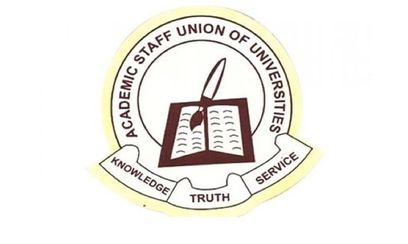UNN students receive N12 million research grants


The Africa Centre of Excellence for Sustainable Power and Energy Development (ACE-SPED) at the University of Nigeria, Nsukka has given seed research grants totaling N12 million to twelve student groups.
According to reports, the students displayed unique and entrepreneurial concepts that will contribute to long-term energy and power development. Each research group earned N1 million to develop samples of their concepts over the course of six months.
Among the standout projects chosen for funding are initiatives like the creation of both fixed and mobile solar power stations tailored for shops and events, the development of a hydro-thermal generator pressure varying (HTPV-G) system, and the mass production and distribution of a hand-held watermelon ripeness detector to assist Nigerian farmers.
Other prominent projects include the development of portable solar generators and the manufacture of bioethanol from agricultural waste.
Speaking at the grant award ceremony, ACE-SPED Director Professor Emenike Ejiogu stated that the funding was part of ACE-SPED’s mandate, which is to foster innovation, entrepreneurship, and technology transfer in the field of sustainable energy and power development.
He underlined that the awards are the first step in a journey to realise and commercialise unique ideas targeted at addressing social needs while boosting the University of Nigeria and the students involved in the projects.
“We have provided you with seed funding; now demonstrate your potential,” Prof. Ejiogu said, emphasising ACE-SPED’s willingness to engage with industrial partners to help commercialise the concepts.
He added that the selection process was demanding, with more than 30 applications from various student research and innovation organisations.
The 12 chosen groups, which included students from all disciplines and academic levels, were thought to have the most potential for influence and success.
Prof. Ejiogu, who also serves as Dean of the Faculty of Engineering at the University of Nigeria, urged government and private sector stakeholders to prioritise investment in research and innovation within higher education institutions, citing their critical role in driving Nigeria’s economic development.
“At ACE-SPED, we ensure that the outputs of our study do not sit on shelves. We perform practical research with the aim of developing indigenous answers to sub-Saharan Africa’s power and energy concerns,” he stated.
He went on to say that the ACE-SPED now offers Master’s and Doctoral degrees in eight NUC-accredited programmes, including renewable and new energy systems, power engineering, sustainable energy materials engineering, industrial electronics and power devices, control and instrumentation engineering, policy regulation and management, engineering design and product development, Management of Technology and Innovation (MOTI), and a professional diploma in additive manufacturing.
Established in 2019 with backing from the World Bank and the AFD, ACE-SPED is tasked with developing a cadre of highly qualified experts poised to transform the energy and power development landscape in Sub-Saharan Africa.
Currently, the Centre has over 250 students enrolled, with over 35 coming from various African countries, demonstrating its regional significance and impact.








